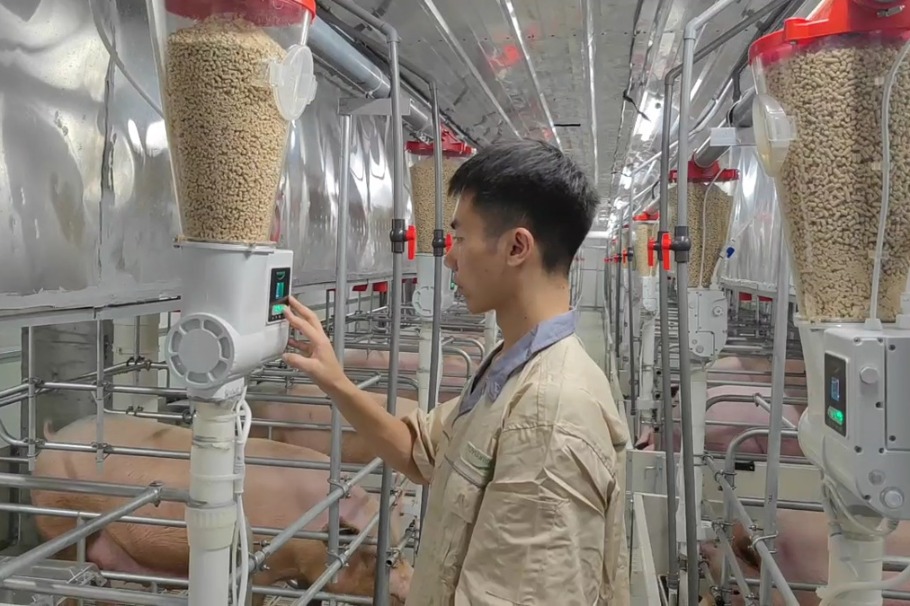Xi's Europe trip boosts China-Central and Eastern Europe cooperation


BUDAPEST -- China and Hungary on Thursday elevated ties to an all-weather comprehensive strategic partnership for the new era, marking the most recent stride in China's effort to deepen cooperation with Central and Eastern European nations.
The decision was announced during President Xi Jinping's state visit to Hungary, the final stop of his three-nation swing across Europe.
It also came one day after China and Serbia decided to build a community with a shared future, an upgrade of their relations from the comprehensive strategic partnership established eight years ago.
The inclusion of Serbia and Hungary -- major countries in Central and Eastern Europe -- in Xi's first trip abroad for the year and his first visit to Europe in nearly five years underscores China's commitment to fortifying cooperation with the region.
During the talks with Hungarian Prime Minister Viktor Orban here on Thursday, Xi said that China-CEE cooperation has a strong internal momentum, expressing the hope that Hungary will continue to play an important role in promoting China-CEE cooperation for the benefit of their respective people.
China-Hungary relations are currently at the best period in history and their comprehensive strategic partnership has maintained high-level development. With deepening political mutual trust and fruitful cooperation in various fields, the two countries have set a model for building a new type of international relations, Xi said.
Most CEE countries are emerging markets, holding substantial potential, notably in connectivity and energy investment.
By synergizing their strengths with China's since 2012, deeper cooperation has not only advanced their economic and social development but also fostered the European integration process.
This strategic alignment has been solidified by robust investment flows. From January to March 2024 alone, China's investment in CEE surged by 36.35 percent compared to the previous year, reaching about 450 million U.S. dollars. As of March 2024, the cumulative total of Chinese investment in the CEE region soared to 5.2 billion dollars.
Take Hungary as an example. In 2023, Hungary was able to attract a total of 13 billion euros (about $13.86 billion) in foreign direct investment, of which about 8 billion euros (about $8.53 billion) were from China, said Hungarian Minister for National Economy Marton Nagy in an interview with Xinhua.
The Hungarian side is looking forward to further cooperating with China in the fields of foreign trade, capital investment, infrastructure, logistics, artificial intelligence, and new energy, among others, he said.
That is also the case for Serbia. "During the past two years, China has emerged as the largest foreign direct investor in Serbia, bringing numerous benefits to the country," said Jelena Grubor Stefanovic, director of representative office of Serbian Chamber of Commerce and Industry in China.
"Now Serbia has more opportunities to systematically focus its efforts on attracting investments from China in industry sectors with high added value like life sciences, digital economy, automotive industry, smart agriculture sector and green development," she said.
These investments, coupled with collaborative projects under the Belt and Road Initiative (BRI), such as the Belgrade-Budapest Railway and Port of Piraeus in Greece, continue to benefit the people in the CEE region.
The Belt and Road cooperation has provided Serbia with important opportunities to strengthen connectivity and promote economic development with neighboring countries, said Ivona Ladjevac, deputy director of the Institute of International Politics and Economics in Serbia.
Key infrastructure projects such as the Belgrade-Budapest Railway and the E763 highway have enhanced Serbia's status as a regional transportation hub, the expert said.
Xi's Europe visit unfolds as Washington is maneuvering to rally its allies in Europe to "de-risk" from China, and slow down the country's high-tech progress, alongside escalating protectionist rhetoric concerning the so-called "Chinese overcapacity" in clean energy sectors.
Chen Fengying, a researcher at the China Institutes of Contemporary International Relations, said that China's enhanced cooperation with Serbia and Hungary has spurred local economic growth and uplifted living standards.
This success is a compelling example of the tangible benefits obtained from forging partnerships with China and progressing collectively, said Chen.
Such an achievement has also exerted a noteworthy inspirational and motivational influence on other CEE countries, she added.
- Beijing-Tianjin-Hebei 2025 celebrations shine at Zhengding county
- Multiple legal, policy measures take effect in China
- SCIA elevates global reach with launch of new English website
- Legacy of Tea Horse Road lives on in Yunnan village
- Brewing rich legacy of tea culture
- China's unfolding story of innovation, unity and influence






































